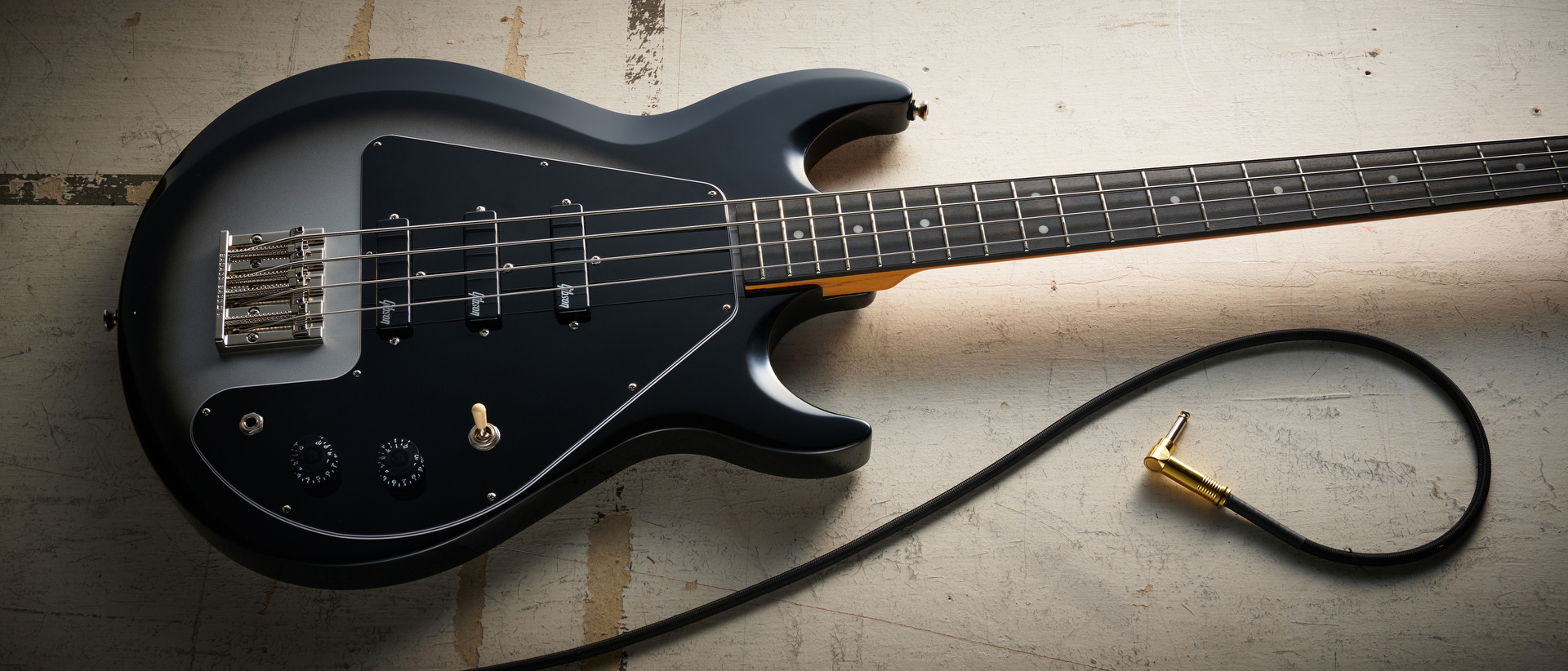“The notion that there’s a designated lead and rhythm guitarist seems like such an antiquated concept”: For Hail the Sun, guitar duos are a puzzle – and it makes their fretboard-melting riffs all the more compelling
The California math-rock dynamos write songs that are “simultaneously challenging, creative, and audibly pleasing – or shocking”: Aric Garcia and Shane Gann explain how their Double Dragon-inspired guitar tag team gives Hail the Sun a six-string approach like no other

All the latest guitar news, interviews, lessons, reviews, deals and more, direct to your inbox!
You are now subscribed
Your newsletter sign-up was successful
"It's funny to me when people ask us who the lead guitar player and the rhythm guitar player is," Hail the Sun's Aric Garcia laughs. "Every band functions differently, but the notion that there's a designated lead and rhythm guitarist seems like such an antiquated concept."
Finding himself in agreement, Garcia's partner in six-string crime, Shane Gann, quips, "Because the guitar as an instrument offers multiple ranges, we naturally have an awareness of the space we're taking versus what space is available. We aren't writing for seven-strings or drop tunings, so it must fit within the arrangement, suit the song, and be fun and unique."
Gann continues, "But in terms of solos and leads, we typically let the other person add their flair to our compositions like my opening leads on Mind Rider, which Aric composed, or Aric's incredible solo on Chunker, which I composed. If the song hasn't been composed by either of us, say, if we're writing collectively, the role of 'lead guitarist' is decided by a breath-holding contest. Underwater, so you know it's legit."
Indeed, anyone who has heard Hail the Sun's latest beauty of a record, Divine Inner Tension, will know that the duo's words are utterly true. Filled with expansive soundscapes and equal doses of that all-important space, the young group's latest is yet another step toward their goal.
"For us, our playing is all over the place, be it rhythmically, stylistically, melodically, chord-wise, phrasing-wise, et ceterea," Garcia tells us. "Shane and I enjoy a good puzzle or brainteaser, and our two styles highlight that. A typical Hail the Sun song consists of complex finger-stretching chord shapes, ripping solos, beautiful atmospheric layering, fingerpicking techniques, harmonized parts, intentionally offset guitar interplay, and whatever else our brains can produce."
Digging deeper into what makes their relationship tick, Garcia continues, "We both like to write parts that are simultaneously challenging, creative, and audibly pleasing, or shocking depending on the context."
Of course, none of this is anything new for Hail the Sun, seeing as the Chico, California natives ingratiated themselves into the math and post-hardcore scenes with relative ease. And given their influences, it's not hard to see where they're coming from – and why they've been able to fly so high so quickly.
All the latest guitar news, interviews, lessons, reviews, deals and more, direct to your inbox!
"Ever since I was a kid in the mid-to-late-'90s, I was always intrigued by the handful of acoustic guitars that my grandpa had, "Garcia reveals. "I would hang out with him while he strummed John Denver, Cat Stevens, and Eagles songs. And when he wasn't home, I would open his guitar cases, lay the guitar across my lap, and make my little tunes plucking only open strings. He recognized my interest in guitar and showed me some open and barre chords."
Garcia wistfully continues, "Like many young guitarists, the initial pain of fretting notes and the size of the neck in my small hands made it challenging at first. But I was determined. In my grandpa's words, playing guitar was like meditation, a sacred space where all your worries and cares disappear as you get lost in the music. This has remained true for me from the times of my little open-string tunes to now, as Hail the Sun shares our music in front of thousands of eager fans. It never gets old."
Interestingly, despite the noise inherent in Hail the Sun's soundscape, Gann's early hours bear a striking similarity to Garcia's gentle origins, making their partnership all the more poignant.
"Some of my earliest memories are of my dad playing his material on acoustic guitar," Gann recalls. I had a nylon toy guitar to play with early on, but my hands and arms were too small to get around the neck and body. It wasn't until middle school, after a failed attempt at teaching myself to play drums, that I ended up with an Esteban acoustic, followed by a Squier Strat, Crate practice amp, and Boss DS-1."
But while the overlap in their origin stories has undoubtedly bonded them via music, when it comes to Hail the Sun, the yin is just as important as the yang.
"I feel like Shane shines when it comes to structuring out entire songs, whereas I focus on writing parts, riffs, and sections of songs," Garcia shares. "And Shane is a master manipulator of meter, tempo, feel, and rhythm, while tending to write a fair amount of leads and riffs that go over the rhythmic foundation."
"Somehow, our styles mesh seamlessly!" Gann concurs. "We see what space is available in the arrangement and find different ways to fill it. And often, we find a natural balance and a unique combination of parts that enhances the song. To paint the picture, we once spent a weekend 'writing' together where we primarily played Double Dragon on SNES, and our guitar relationship is akin to that of Jimmy and Billy: we tag team the area and play off each other's strengths."
Still, now more than ever, it's hard for smaller artists to get ahead, which can be frustrating. But despite the often hard road they traverse, the boys in Hail the Sun are unfazed and as determined as ever to succeed.
"I'd like to believe that despite the low attention-span world that we live in today, the cream still rises to the top," Garcia insists. "I think being frustrated at the speed at which content is consumed is crazy. The answer is to keep working at your craft and, in the words of Steve Martin, 'Be so good they can't ignore you.'
"Hail the Sun might be a lot for someone to digest initially, but people are slowly coming around and realizing that we've been producing quality music for over a decade. Maybe someday we'll even be able to quit our day jobs!"
Slowly but very audibly exhaling, Gann adds, "It's not frustrating because the audience perspective hasn't changed much since I was a kid. Don't like the current song or TV show? Change the station and repeat until you find what you consider 'quality content.'
"Today, there's a heightened expectation that the audience's incessant salivating means that it deserves to be continually fed. And if I'm not providing the french fries, it'll be someone else, and that could make me feel less valuable compared to my fry-cooking peers.
"I have to remind myself a) that fries will exist with or without me, and b) that my fries can't be easily replicated, and that the people who want my fries will always want them, whether they're done now or done in three years. They know my fries are perfectly seasoned and well worth the wait."
- Divine Inner Tension is out now via Equal Vision Records.
Andrew Daly is an iced-coffee-addicted, oddball Telecaster-playing, alfredo pasta-loving journalist from Long Island, NY, who, in addition to being a contributing writer for Guitar World, scribes for Bass Player, Guitar Player, Guitarist, and MusicRadar. Andrew has interviewed favorites like Ace Frehley, Johnny Marr, Vito Bratta, Bruce Kulick, Joe Perry, Brad Whitford, Tom Morello, Rich Robinson, and Paul Stanley, while his all-time favorite (rhythm player), Keith Richards, continues to elude him.

